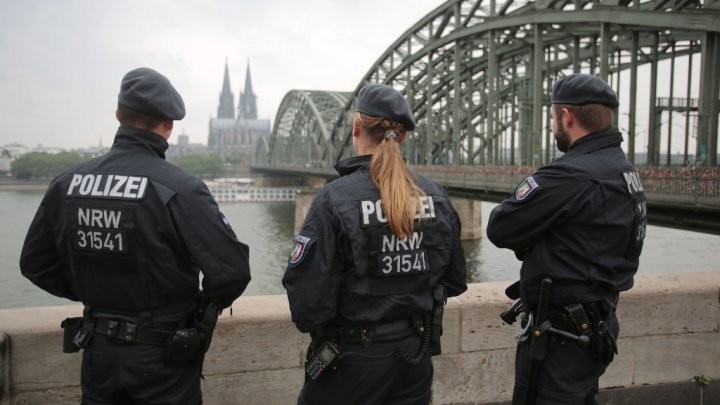France, Germany combat terrorism on the internet
Anh Huyen -
(VOVworld) – Europe has become an expanded target for terrorism. France and Germany have increased cooperation in monitoring extremist groups and sharing intelligence to foil terrorist schemes, particularly encrypted plots on the internet.
 |
Police officers in Cologne, Germany.(photo: Oliver Berg / DPA / AFP)
|
In the technological era of the 21st century it has become more difficult than ever to prevent terrorist plots. Technology has been both a solution and a problem facing governments in hunting terrorists. Extremist groups and the self-proclaimed Islamic State (IS) have regularly used social networks such as Facebook and Twitter to exchange coded information and issue orders on the Internet. Coding has become one of the most serious concerns for governments and police in combating terrorism worldwide.
The German intelligence agency revealed recently that IS has arranged 6-member teams to code all exchanged information around the clock, hide private data, and secretly use social networks. IS members have used Telegram, a messaging app, to spread information. Telegram uses two layers of encryption to send information faster and more secretly than other apps such as WhatsApp or Facebook. Last week Telegram said it has blocked 164 channels in 12 languages which are associated with IS. But the move has only affected public channels because private messages on Telegram have been heavily encrypted. Telegram users can share messages and photos with their friends on “secret chat” of up to 200 members. They can even create special secret chat where all messages, photos, and videos can automatically be deleted.
Apart from strengthening national security, the German and French governments have agreed on a common plan to deal with terrorist encrypted information on social networks. Their Ministers of Home Affairs will meet on August 23 to discuss an approach for the EU and the whole world. Germany and France have suffered many attacks since the beginning of the year. Almost all attacks were planned via encrypted messages on mobile phone apps. For example the two terrorists involved in the Rouen church attack on July 26 communicated on Telegram. France and Germany have called on European countries to share information, tighten the law on weapons registration, control weapon sales on the Internet, and discussed with Facebook the sharing of information of users who are suspected terrorists.
Anh Huyen